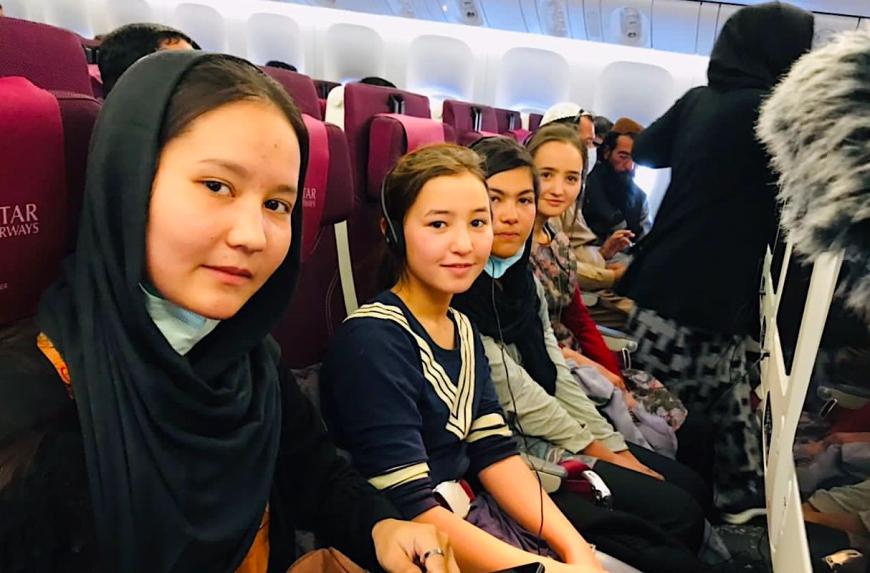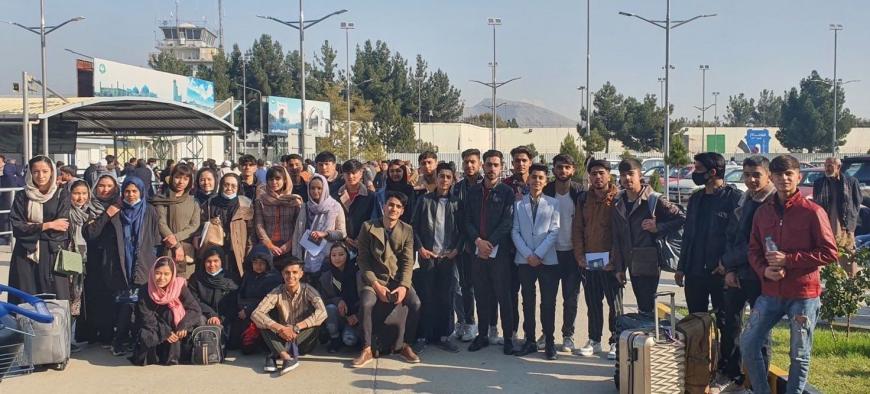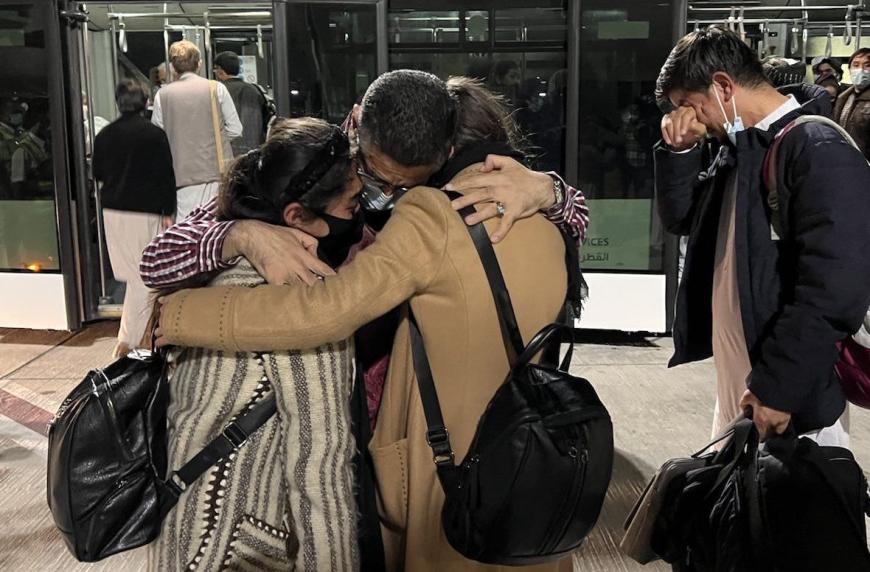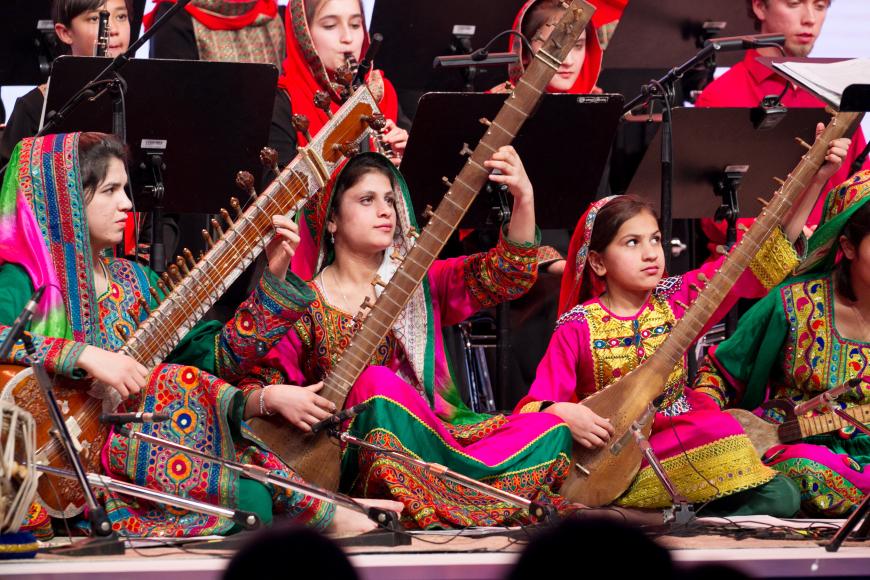
A week before Thanksgiving came this unexpected, great news from a country that has been only the source of catastrophes: All members of the Afghanistan National Institute of Music (ANIM), including the all-female Zohra orchestra, are safe, having escaped from the country now ruled by the Taliban, which before forbade performance of music and the education of women.
“Ensuring Future of Afghan Music, 272 Students, Faculty, Staff & Family Members Are Now in Qatar, Set to Rebuild School in Portugal,” said the headline from 21C Media Group, which released the news.
Dr. Ahmad Naser Sarmast, founder and director of ANIM, said: “Now that the last two students have been reunited with the rest of the ANIM community, I am extremely pleased to see that the hard work of everyone involved in rescuing our young and master musicians has finally paid off.

“Today we celebrate their freedom to make music, continue their education and safeguard the rich musical tradition of Afghanistan in exile, while sharing its beauty with the rest of the world.”
The rescued ANIM community includes both master musicians like Ustad Rasool Azizi, who, at 85 years old, is a leading exponent of traditional Afghan music on the tanbur, and 125 students, including violinist Gulmeena Khushdi, aged 20, who says: “The Taliban took away our freedom and all our rights. We did not even have a safe place to live. Now we have our freedom back, I hope to live my life and pursue my dream of becoming a successful musician.”
After the gradual evacuation of ANIM members, on Nov. 16 the last musicians were airlifted from Kabul to Doha, Qatar. There they rejoined the ANIM students, faculty, staff, and immediate family members who were rescued in recent weeks, including the famed, all-female Zohra orchestra. They will continue to Portugal, where the school will be reconstituted.
This was the last of five airlifts from Kabul since October 2 and it completes the school’s exit. Comprising one of the largest group rescues of at-risk Afghans to date, this auspicious development marks the most recent step in a long and complex effort, made possible by the State of Qatar, which provided aircraft, diplomatic assistance, and temporary accommodation, and the government of Portugal, where ANIM community members have been granted group asylum.
Other key players include cellist Yo-Yo Ma, conductor Daniel Barenboim, and other members of the artistic community; a bipartisan group of U.S. lawmakers, including Senate Majority Leader Charles Schumer (D-NY), Senator Bill Cassidy (R-LA), House Speaker Nancy Pelosi (D-CA), and Representative Liz Cheney (R-WY); and leading philanthropists, diplomacy experts, military veterans, and pro bono lawyers.

Zohra conductor and percussionist Shogofa Safi, a 12th grader, said: “I got my hope and my dreams back. It is hard to be away from your motherland and loved ones, but being alive, and able to preserve the musical heritage of my country, makes me happy.”
Since 2010, when Sarmast first founded it in Kabul, ANIM has become internationally recognized as “a great success story in the effort to renew cultural life and the arts in Afghanistan” (NPR). The war-torn nation’s first and only music school, it gave Afghan boys and girls the rare opportunity to learn side by side, and to study both Western and Afghan music, while also receiving a general education.

Ensembles from the school, including the Afghan Youth Orchestra, National Symphony Orchestra, and Zohra, undertook high-profile international tours, sharing the unique musical traditions of their homeland with enthusiastic audiences at the World Economic Forum in Davos, New York’s Carnegie Hall, Washington, D.C.’s Kennedy Center, London’s British Museum, and other prominent venues worldwide.
By contrast with the 1990s, when music in Afghanistan was explicitly banned, today the Taliban has yet to issue any official decree. However, the Taliban’s top spokesman, Zabihullah Mujahid, told The New York Times that because music was “forbidden in Islam,” it would “not be allowed in public,” and the Taliban “hoped to persuade people not to listen to it.”




